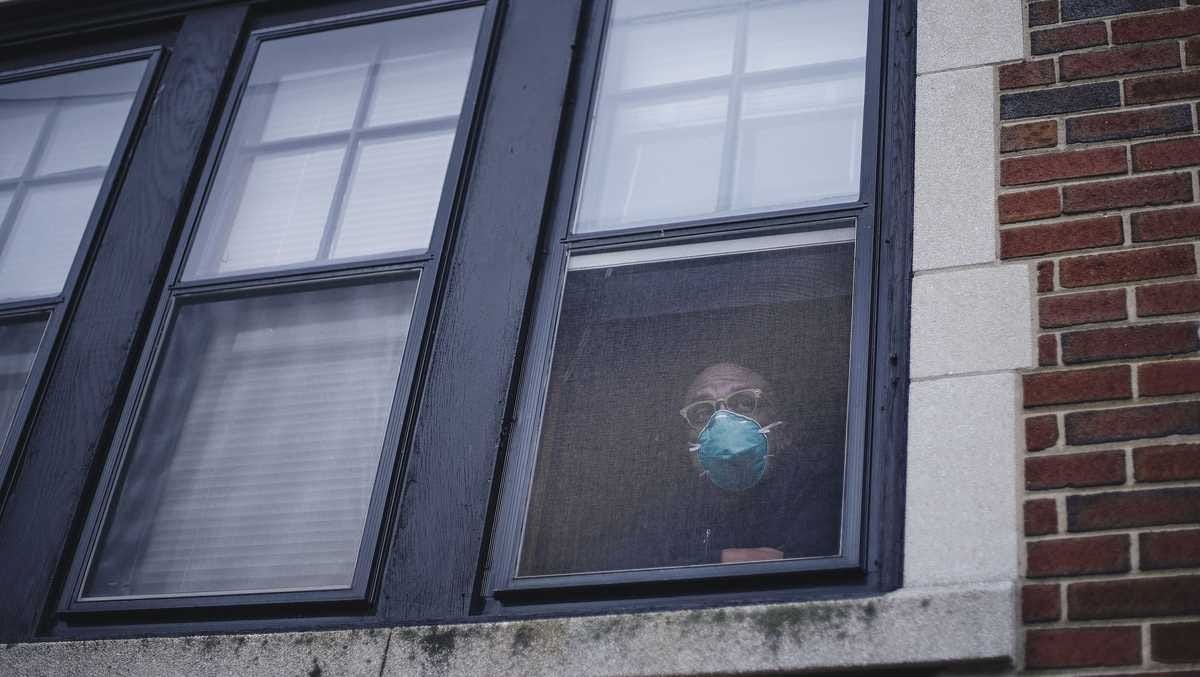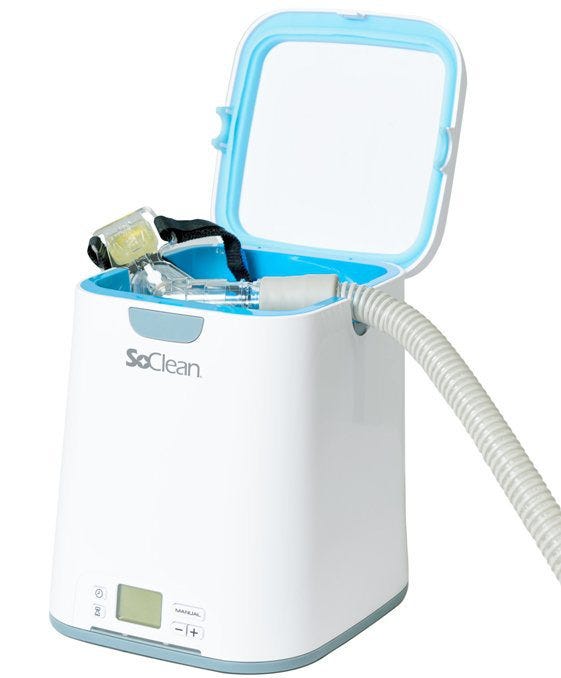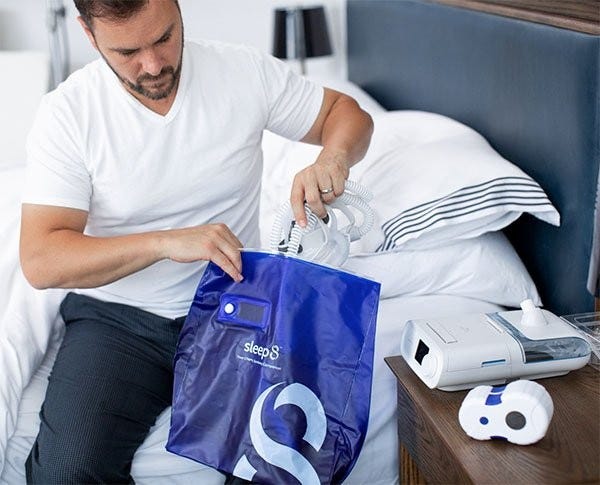Am I at Higher Risk for Coronavirus if I Have Sleep Apnea?

While there is no evidence that individuals with sleep apnea are at an increased risk of getting Coronavirus, all CPAP/BiPAP users should take extra precautions to prevent the spread of the virus. It is also important to note that using a CPAP or BiPAP machine does not help prevent Coronavirus.
The CDC currently lists certain people who are at higher risk of infection.
- Older adults, especially those living in convalescent centers
- Individuals with chronic medical conditions, including heart disease, diabetes, lung disorders or kidney disease
- People with a compromised immune system or anyone who is taking medications that weaken immunity
- Individuals in contact someone who has been infected with the coronavirus
How Can I Protect Myself While Using CPAP?
The best way to reduce the risk of infection while staying compliant to CPAP therapy is to keep your CPAP equipment clean. The CDC. recommends that you clean and disinfect your medical equipment per manufacturer instructions. It also recommends that you clean and disinfect frequently touched surfaces. This includes the exterior of the machines, door knobs, light switches, and handles.
Remember, that it is never a good idea to share your CPAP equipment with others that is especially true during this pandemic. Keep your CPAP machine and CPAP mask away from the physical contact of others. The coronavirus can remain on surfaces like metal and plastic for up to two to three days.1
Disinfect the exterior of your CPAP machine and all surrounding surfaces.
If you use a CPAP machine with a humidifier, make sure to empty out any remaining water in the chamber daily. Only use clean, distilled water just before using your humidifier at night.
Reducing the Risk of Coronavirus Infection with CPAP Cleaner and Sanitizing Machines
Not only do CPAP cleaner and sanitizing machines clean more thoroughly, they are also easier to use. If you want something more convenient than daily handwashing of your masks, hoses and headgear, CPAP sanitizing machines are your best choice. Here are some options.
The SoClean 2 CPAP Clean and Sanitizing Machine destroys 99.9% of bacteria and viruses, including Coronavirus. No water or cleaning chemicals needed. Place your mask, tubing, water chamber, and headgear into the machine for thorough automated disinfection.

The Sleep8 CPAP Cleaner & Sanitizer Device uses "activated oxygen" which is another name for ozone to naturally clean, sanitize, and sterilize your CPAP equipment without added chemicals. Food and healthcare industries have used the cleaning power of ozone for decades, and Sleep8 now uses ozone technology to keep sleep therapy equipment clean.

If you have questions about sanitizing your CPAP equipment or need help selecting a sanitizer that’s best for you, give our expert consultants at The CPAP Shop a call or send an email.
Reference:
1. University of California-Los Angeles. Study reveals how long Coronavirus remains infectious on cardboard, metal and plastic. ScienceDaily. 2020 Mar 20.
[magento store="1" sku="SC1200-BUNDLE , DET-306" order="sku" dir="desc" limit="4" class="override"]




